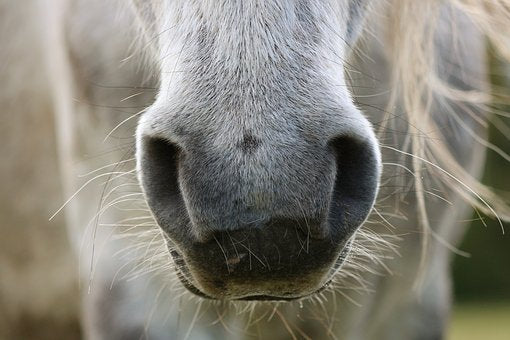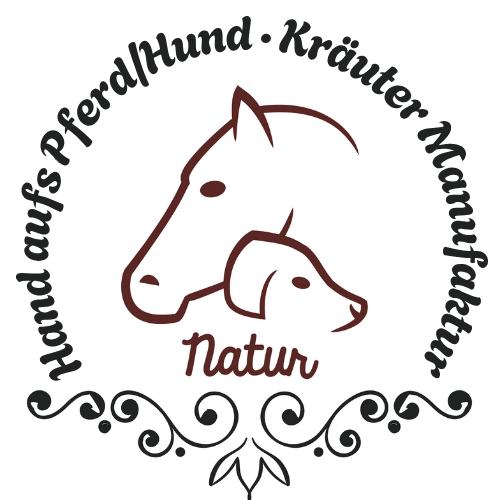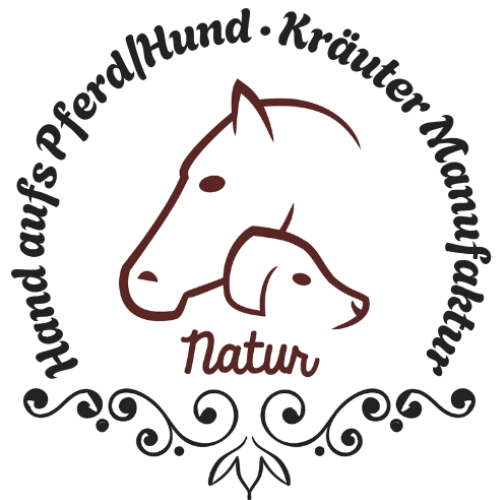
Worms in horses - Overview
Worms in horses – What you should know
Worms are an issue for horses that almost every horse owner has to address sooner or later. Even if they don't cause immediately visible damage, they can cause long-term health problems for your horse. But don't worry – with a few simple measures, you can ensure your horse is well protected and feels completely comfortable.
Why worms are a problem for horses
Unfortunately, horses are naturally susceptible to worm infections, especially because they can repeatedly come into contact with worm eggs by eating grass or drinking contaminated water. These eggs enter the intestines, where they develop and, in the worst case, can cause a massive health problem for your horse.
There are many different types of worms that can infect your horse. The most common include:
-
Strongyles : These horseworms are arguably the most common. They come in various forms and can cause problems in both the gastrointestinal tract and the circulatory system.
-
Tapeworms : These are particularly long and can lodge in the horse's intestines. Although they are not as common, they can cause symptoms similar to other worm species.
-
Roundworms : These small worms are often harder to detect because they usually live in the upper parts of the intestine.
-
Roundworms : Young horses are especially susceptible to roundworms, which infect the small intestine. They are one of the most common worms in foals and young animals.
How do you know if your horse has worms?
Worms don't always cause noticeable symptoms immediately. But there are a few signs you should look out for:
-
Weight loss : If your horse isn't gaining weight or is even losing weight despite good nutrition, it could be due to a worm infection. Worms eat away at your horse's body and deprive it of important nutrients.
-
Bloated stomach : A bloated stomach can be an indication of worm infestation, especially if your horse otherwise appears fit.
-
Diarrhea or colic : If your horse suddenly suffers from diarrhea or even colic, worms could be the cause. Especially with massive worm infestations, inflammation and blockages in the intestines can also occur.
-
Weakness and lethargy : Horses with worm infestation often appear tired and lack energy. They are less lively and catch their breath more quickly than usual.
-
Cough : Some types of worms can infect the lungs and cause your horse to cough.
How do worms get into horses?
Worms enter your horse's body through contact with contaminated grass, water, or the stable environment. Other animals, such as rodents or birds, can also spread worm eggs. Once ingested, the eggs enter the horse's digestive tract, where they develop.
What's particularly problematic is the fact that many worm eggs only become visible in the horse's feces months after ingestion - meaning your horse may already be infected before you notice it.
What can you do to protect your horse from worms?
Regular deworming
The most important measure to protect your horse from worm infestation is regular deworming . Depending on the needs and the worm species in your area, you should deworm your horse every few months. The exact frequency depends on various factors, such as the type of pasture, your horse's age, and the time of year.
-
Foals and young horses generally require more frequent deworming because they are more susceptible to worm infestation.
-
Adult horses should be dewormed every 3 to 6 months, depending on the level of stress.
-
Older horses often have a weaker immune system and may require more intensive deworming.
Fecal examination
A fecal examination can help you determine whether your horse has worms. A sample of the horse's feces is examined for worm eggs. This allows you to determine whether deworming is necessary and which types of worms are affecting your horse. This helps avoid unnecessary medication and tailor treatment accordingly.
Cleanliness in the stable and on the pasture
Worms spread through feces, so you should make sure to regularly clean the stable and pastures of horse manure. This reduces the risk of worm eggs ending up in the grass and re-infecting your horse.
Good pasture care
Make sure your horse's pastures are regularly maintained. You should manage your pastures well, especially during the warmer months when ticks and worms are active. By rotating pastures and mowing the grass, you can ensure that worm eggs are not spread as easily.
Healthy eating
A strong immune system helps your horse better cope with worm infections. Ensure a balanced and nutrient-rich diet. Vitamins A , E, and zinc, in particular, support your horse's immune system and help it defend itself against worm infestations.
Worms are unfortunately a widespread problem in horses, but with the right measures, you can effectively help your horse stay healthy. Ensure regular deworming, conduct fecal examinations, and keep the stable and pasture clean. This way, you can prevent worms from harming your horse – and enjoy your time in the stable or on the pasture without worry.
It's important to always be well-informed and check your horse regularly for parasites. If you're unsure or your horse is showing symptoms, you should always consult your veterinarian.
Source: Martina Hemm July 2025

